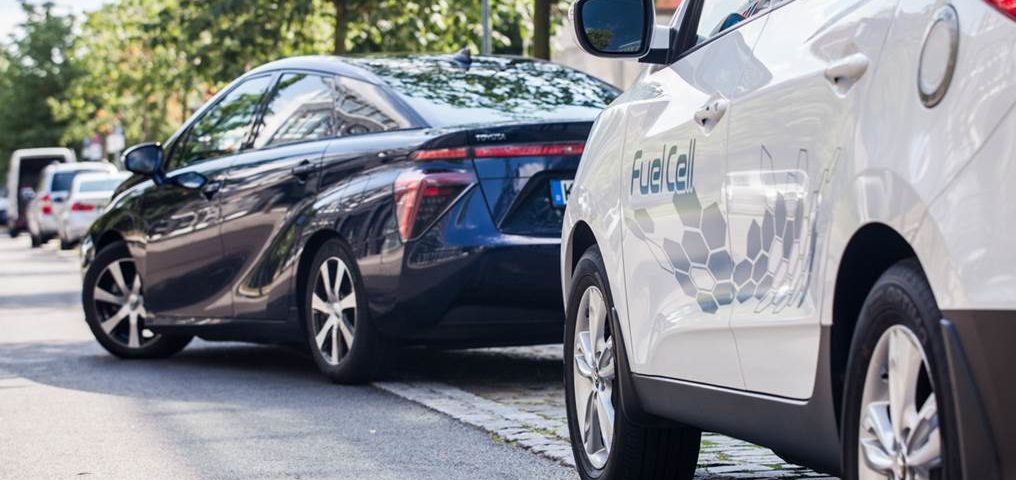open eGo – Entwicklung eines netzebenenübergreifenden Planungsinstruments zur Bestimmung des optimalen Netz- und Speicherausbaus in Deutschland (Kötter et al. 2016)
5. July 2016Increasing the Hosting Capacity of Distribution Grids by Implementing Residential PV Storage Systems and Reactive Power Control (Camacho Rascon et al. 2016)
8. July 2016German Hydrogen Congress: hybrid charging stations complement renewable energy

Hydrogen cars at the German Hydrogen Congress 2016 | © Photo: NOW GmbH/Philipp Plum
July 7th 2016 – Oliver Arnhold, head of the team “Mobility with renewable energy” at RLI has participated in the „7. Deutscher Wasserstoff Congress“ (7th German Hydrogen Congress) on July 5th 2016 in Berlin. Oliver shared his perspective on the German energy and transport transition and presented current results of his research. In front of 200 experts, he spoke about the “charging station of the future” and the consequences of the transport transition for the development of renewable energy on national level, storages, and peak-load electricity generation plants in Germany.
Norbert Barthle, Parliamentary State Secretary at the Federal Ministry of Transport and Digital Infrastructure stated in his welcome keynote: “Hydrogen and fuel cell technology is an important alternative […] to battery-powered vehicles which are still limited in range and performance.”
Oliver Arnhold adds: “RLI results show that the potential of hydrogen technologies is even greater. A mix of battery- and fuel-cell-powered vehicles would also facilitate linking sectors. Hybrid charging stations close to motorways would need only half of the necessary electric performance at network connection points, compared to pure power charging stations, which would lower costs for operators and users. On national level, hydrogen infrastructure offers more flexibility to renewable power systems, thus, could reduce the necessity for additional storages and peak-load electricity generation plants.
Oliver’s presentation slides are available upon request.
© Fotos: Philipp Plum | Courtesy of NOW GmbH
- Auditorium at the German Hydrogen Congress 2016 | © Photo: NOW GmbH/Philipp Plum
- Oliver Arnhold during his keynote at the German Hydrogen Congress 2016 | © Photo: NOW GmbH/Philipp Plum
- German Hydrogen Congress 2016 | © Photo: NOW GmbH/Philipp Plum
- Hydrogen cars at the German Hydrogen Congress 2016 | © Photo: NOW GmbH/Philipp Plum
- German Hydrogen Congress 2016 | © Photo: NOW GmbH/Philipp Plum









